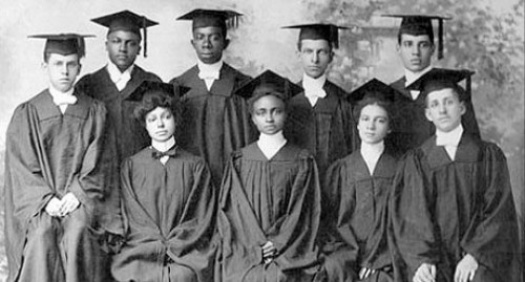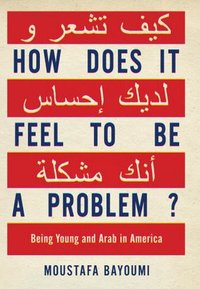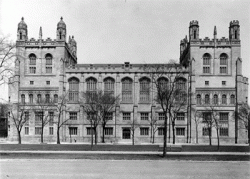
Michelle Kamhi is the co-editor of the online arts review Aristos, and a mild-mannered, well-spoken New Yorker with a love of art and intellectual integrity. She is also the cause of a heated controversy that has broken out in the world of art education. The source of this conflict is an op-ed Kamhi wrote in […]
Read More
Should all-black colleges exist in 2010? No, some say. After all, it’s been almost fifty years since segregation was outlawed in America. And most Historically Black Colleges and Universities (HBCUs) are of also-ran status, doing their best, but hardly the bastions of excellence that so many were in the old days. Graduation rates are low […]
Read More
Radical Math held its third annual conference in New York last weekend. Four hundred high school math teachers and education professors attended the conference on “Creating Balance in an Unjust World: Math Education and Social Justice.” At thirty-two workshops on Long Island University’s Brooklyn campus and in half a dozen city public schools, math teachers […]
Read More
How Does It Feel to Be a Problem? Being Young and Arab in America—the controversial book assigned for freshman reading at Brooklyn College—is, in my opinion, an important but seriously flawed work, and one that should be read, but not as a sole required text for incoming English students. In the book Brooklyn College English […]
Read More
I hesitate to criticize sociology or sociologists. After all I am now at nearly a lifetime in the discipline, which I have taught for more than thirty years. But I would be dishonest if I did not acknowledge that throughout that time I have been a dissident in the field, a role, protected by tenure, […]
Read More
About this time of year, faculty members seek relief from their stressful campus existence by flocking to such fun-filled destinations as Orlando and Las Vegas for their annual professional conferences. However, these workaholics never are far removed from their sociopolitical agendas, which are available for the world to see in workshop descriptions laid out in […]
Read More
This paper was prepared for yesterday’s conference on “Capitalism on Campus: What Are Students Learning? What Should They Know?” The one-day event in New York City was sponsored by the Manhattan Institute’s Center for the American University. Charlotte Allen, who writes frequently (and exceptionally well) for Minding the Campus, is preparing a report for us […]
Read More
Mark C. Taylor’s Crisis on Campus: A Bold Plan for Reforming Our Colleges and Universities (Knopf) is neither as bold nor as innovative as he would like us to believe. What purports “to begin a national conversation about transforming our institutions of higher learning” merely continues the postmodern assault on higher learning that began in […]
Read More
Here is a new trend: college for people who can’t read or write. And no, that doesn’t mean the one out of three freshmen whose literacy and numeracy skills are so poor that they have to take remedial courses before they are deemed ready to do college-level work. It means students who literally can’t read […]
Read More
A mesmerizing phrase regularly rolls off the tongues of education experts these days. Secretary of Education Arne Duncan used it in a recent speech to the National Conference of State Legislators, saying that Common Core’s new standards will try to make certain that high school graduates are truly “college- and career-ready.” Sounds impressive, but he […]
Read More
Dear Assistant Professor: Congratulations on your new job! Whether you’re a visiting professor or on the tenure-track, consider yourself among of the lucky. As someone who ran the academic treadmill for eight years—I taught at a community college, at two four-year liberal arts colleges, and at a state university until I landed a permanent position […]
Read More
In his recent speech at the University of Texas in Austin, President Obama expressed deep unhappiness that the United States is no longer the country with the highest percentage of college graduates in the 25 to 34 age bracket. By 2020 he wants us to regain the top position we enjoyed ten years ago before […]
Read More
Only a federal bureaucrat could come up with an oxymoron this laughable: “Feasibility of Including a Volunteer Requirement for Receipt of Federal Education Tax Credits.” A “volunteer requirement”? Come again? But that’s what the Treasury Department said in a call for comments issued this spring on the idea of making community service–volunteer work for charity–mandatory […]
Read More
By Stefan Kanfer In full-page newspaper ads, the Kindle displays the first page of an e-book. Its opening is famous: “I am an invisible man.” Or is it famous anymore? How many high school seniors—or for that matter college undergraduates—can identify Ralph Ellison’s novel? True, the author was an African-American, but he was a male […]
Read More
This is the slightly edited introduction to the author’s new collection of essays, Decline and Revival in Higher Education ( Transaction Publishers ). Dr. London is president of the Hudson Institute, one of the founders of the National Association of Scholars, and the former John M. Olin Professor of the Humanities at New York University. […]
Read More
Almost every morning, after taking a shower, I get on the scale to see if I have lost some of the extra weight that I do not want or need. I have tried many ways of shedding the pounds, with diet and exercise at the top of the list. The pounds refuse to disappear. After […]
Read More
In the wake of the National Association of Scholars’ report on summer reading for college freshmen—the report found many of the assigned books trivial and politically one-sided—we asked Leon Botstein, president of Bard College, to explain his institution’s unusually rigorous approach to summer reading. For the past two years, Bard College has asked first-year students […]
Read More
On 19 April, the board of trustees of Shimer College in Chicago, by an 18 to 16 vote, ousted Dr. Thomas Lindsay from the presidency after little more than a year of service. For sixty years, tiny Shimer (about ten faculty and 100 students) has touted itself as a Great Books college on the Robert […]
Read More
For several decades, conservative critics of higher education have argued against trends toward the elimination of “core” curricula and with equal ferocity against their replacement by “distribution requirements” or even open curricula. They have, in particular, defended a curriculum in “Great Books,” those widely-recognized texts in the Western tradition authored by the likes of Plato, […]
Read More
In the contemporary battle within the social sciences between free market think tanks and liberal- dominated universities, the former labor under a huge disadvantage: they lack students. Think-tank based scholars may daily issue erudite policy analyses, write incisive op-ed columns galore, dominate talk radio, publish in widely admired magazines like City Journal but the half-life […]
Read More
On 2 December 2009 the curtain of Harvard’s famed Agassiz Theater rose on a production of Avrom Goldfaden’s Shulamis, one of the most famous plays in the Yiddish repertoire. An operetta set in the Land of Israel in late biblical times, it was last performed in Warsaw in 1939, and forcibly shut down by the […]
Read More
As the senior class of Yale College prepares for its final semester and reflects on the Bright College Years so swiftly gliding by, I have heard one phrase repeated with surprising frequency: “I wish I had done Directed Studies.” It’s a statement that doesn’t accord with the stereotype of Yale seniors as either careerists shaking […]
Read More
The Obama administration – along with many in the opinion elite – is looking to the nation’s two-year community colleges as the primary vehicle to ramp up future Americans’ level of post-secondary educational attainment. A down payment in this direction are the billions of dollars of direct and indirect community college aid included in the […]
Read More
By Sandra Stotsky and Ze’ev Wurman Every year seems to produce a burst of attention to a particular crisis in education. In 2009, the most publicized crisis is likely the staggering number of post-secondary students with severe debilities in reading and math. Estimates of those needing remedial classes before taking credit courses range from 30% […]
Read More
If there’s anything uniting faculty on different sides of the aisle nowadays it’s disapproval of large lecture courses. To the Left, lectures are authoritarian; to the Right, they are lowbrow. Better the egalitarian or members-only atmosphere of the seminar, they say. To anyone who is just “agin’ the guv’ment,” lecture courses suffer the stigma of […]
Read More
The University of Chicago met widespread national opposition ten years ago after it instituted a new, less demanding core curriculum to make way for more electives. It was part of a plan to make the curriculum significantly less demanding (more “fun”) to attract more students and improve the school’s bottom line. Instead of 21 required […]
Read More
While this year has become best known as the fortieth anniversary of Woodstock, it was also forty years ago that the first African-American Studies department was established, at San Francisco State University. Forty-one fall semesters later, there are hundreds of such departments. Has what they teach evolved with the march of time? What should the […]
Read More
Fourteen Columbia professors are protesting the university’s apparent decision to award tenure to Joseph A. Massad, a controversial anti-Israel professor of Arab studies. The professors are from the schools of law, business and public health. They expressed their concern in a five-page letter to the incoming Provost, Claude M. Steele. The letter asserts that the […]
Read More
In a recent interview with Mars Hill Audio Magazine, Stanley Fish insists on a distinction bound to vex his colleagues. Professors must remember, he says, the difference between academic judgment and political judgment. In a classroom situation, academic judgment is the application of academic training to materials within the purview of a discipline, for instance, […]
Read More